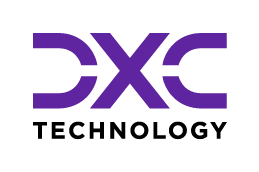DXC launches comprehensive
self-insurance solution
IN Partnership with
New platform combines technology, people and process to address mounting pressures on self-insured organisations

More


FOR ORGANISATIONS that self-insure their workers’ compensation, workplace injuries are more than operational challenges; they are defining moments that reveal the organisation’s true values.
In these critical instances, the quality of care, communication and support offered to injured employees speaks volumes about a company’s culture and priorities. At the same time, rising healthcare costs, an increase in mental health-related claims and a growing web of regulatory complexity are placing significant strain on internal teams. The result is often a fragmented and inconsistent experience for employees, undermining trust and complicating recovery journeys.
DXC Technology has an answer. Its new offering, DXC Assure Risk Management, represents the first comprehensive solution to address these challenges in a single, integrated service. The product combines artificial

DXC Technology (NYSE: DXC) is a leading global provider of information technology services. We’re a trusted operating partner to many of the world’s most innovative organisations, building solutions that move industries and companies forward. Our engineering, consulting and technology experts help clients simplify, optimise and modernise their systems and processes, manage their most critical workloads, integrate AI-powered intelligence into their operations, and put security and trust at the forefront. Learn more on dxc.com.
Find out more



DXC Assure Risk Management
key features
Human-in-the-loop components: specialized team of experts with unparalleled insurance knowledge that can support all aspects of the claims life cycle including sentiment analysis and claims prevention
“What sets us apart is that we’ve struck the right balance between automation and human expertise”
Joe Benson,
DXC Technology
intelligence-enabled automation with human expertise and end-to-end service delivery, promising to reshape how self-insurers approach risk management.
Joe Benson, global product leader for property and casualty insurance at DXC Technology, has seen various systems attempt to organise the chaos involved in managing a typical injury claim. But from the outset, DXC Assure Risk Management has been designed to be much more than an organisational tool.
“What we’ve built is not just a system to log and manage claims,” says Benson. “It’s a full end-to-end service that covers everything from receiving the claim to getting someone safely back to work. That includes managing regulatory requirements, return-to-work planning, payments and reporting.”
The difference lies in the integration, not just of systems but of strategy, compliance and care, delivered through one platform that’s built to think ahead and act fast.
“It’s a genuine step-change because organisations no longer need to manage this complexity on their own or stitch together different tools and vendors to make it work. It’s all in one place, from one partner,” he says.
The timing of this launch reflects broader shifts within the self-insurance sector. Organisations are grappling with increased regulatory scrutiny, talent shortages and mounting pressure to control healthcare costs while improving employee outcomes.
DXC knows the market – and its problems – intimately.
“We’ve been working with self-insured customers for decades;
our Assure Claims platform has been in market since the 1980s and today supports over 230 clients in the US alone,” says Benson. “The challenges we hear are consistent: regulatory complexity, talent turnover, outdated systems and rising costs.”
This convergence of pressures has created what industry observers see as a perfect storm for self-insurers. Traditional approaches to claims management, often involving multiple vendors and manual processes, are proving inadequate for today’s regulatory environment and employee expectations.
“On top of that, a lot of organisations don’t want to be in the business of managing claims; they just want it done properly,” Benson says.
“What we’re offering is a fully integrated model, which means self-insurers don’t have to coordinate multiple vendors or systems anymore”
Dr. Micheal Neary,
DXC Technology

Central to the platform’s design is what DXC calls its 'human-in-the-loop' approach. While artificial intelligence handles routine tasks such as document processing and risk flagging, experienced professionals oversee the process and provide support for complex cases.
“What sets us apart is that we’ve struck the right balance between automation and human expertise,” Benson says. “AI handles the repetitive, manual parts of the job like reading documents, matching payments. That speeds things up and cuts down on errors.”
This hybrid model reflects growing recognition that while technology can drive efficiency, claims management ultimately involves human experiences that require empathy and expertise.
“We also know that claims aren’t just numbers. They’re people,” Benson adds. “That’s why we have experienced professionals overseeing the process, supporting the injured worker and ensuring quality.”
One of the most significant challenges facing self-insurers is the complex web of regulatory requirements that vary by jurisdiction. These requirements often involve strict reporting timelines and detailed compliance documentation that can strain internal resources.
“The rules around self-insurance are complex and vary by state,” Neary says. “You’ve got monthly reporting, strict timelines and a lot of compliance oversight. Getting that wrong can lead to penalties or reputational damage.”
The platform is designed to automate much of this compliance burden, with built-in processes that align with different jurisdictional requirements and automated reporting capabilities.
“What we offer is a platform that handles all of that,” Neary explains. “It’s designed to stay aligned with each state’s requirements and automates much of the reporting.”

Share






A market ready for change
Balancing automation and human insight
Published 11 Aug 2025
Share








Source: DXC
All about DXC


21 of the world’s top 25 insurers rely on DXC to help them solve critical business challenges and support their mission-critical operations.
DXC has over 40 years of experience servicing corporations, government entities, risk pools and third-party administrators (TPAs) in the self-insured market.
DXC has guided over 1,000 insurance clients through disruption, processing over 1 billion insurance policies and 10% of the world’s premiums.
The company operates in over 70 countries with 120,000+ employees.
Source: DXC

AI-enabled business processes: automation of claims workflows, mitigation of operational risks and health and safety tools

SaaS technology: end-to-end, persona-based claims and risk management system featuring document automation, dashboards and gen AI throughout the claims process to help improve outcomes

The new solution will significantly enhance the future of insurance for self-insured companies in terms of the bottom line but also for employee satisfaction and output.
Rather than forcing organisations to coordinate between technology providers, service companies and internal teams, the platform consolidates these functions under one roof. DXC believes the goalposts will move – in a good way – once word spreads.
“It’s going to shift expectations,” says Dr. Micheal Neary, managing director of insurance at DXC Technology, Australia and New Zealand. “Self-insurers will start to expect this level of integration, automation and insight as standard. And for the self-insured clients themselves, it gives them a new option. One that simplifies their operations and lets them focus on their core business.”
The solution addresses what many industry executives see as a limitation of existing offerings: their focus on individual components of the claims process.
“Most options in the market today only solve part of the problem,” Neary explains. “This fills the gap by offering the full package in one solution for the complete claims life cycle.”
The integration imperative
Regulatory complexity as a driver
insurers, who bear the direct financial impact of claims costs and outcomes. Early intervention and proactive risk management can significantly affect both financial performance and employee satisfaction.
“Automation will continue to take the load off teams, and analytics will drive smarter strategies,” Benson adds. “For self-insurers, that means better outcomes for injured workers, faster return-to-work and a more efficient operation overall.”
Technology evolution and future direction
DXC’s entry into this space comes at a time when self-insurers are increasingly open to outsourcing claims management functions. The combination of talent shortages, regulatory pressures and cost concerns has made the traditional in-house approach less viable for many organisations.
“We’ve seen a real shift in mindset from self-insurers,” Benson says. “There’s growing pressure to control costs, improve employee outcomes and keep up with regulatory changes. At the same time, it’s harder than ever to recruit and retain the people who manage claims internally.”
The launch is expected to intensify competition among insurance technology providers, particularly those offering partial solutions or traditional third-party administration services.
“This raises the bar,” Neary says. “A lot of providers offer either tech or services, but not both. What we’re offering is a fully integrated model, which means self-insurers don’t have to coordinate multiple vendors or systems anymore.”
Competitive implications
The platform’s architecture reflects broader trends in enterprise software, with software-as-a-service delivery, real-time analytics and predictive capabilities becoming standard expectations rather than differentiators.
“The big shift is from reacting to predicting,” Benson says. “SaaS platforms let us collect and analyse data in real time, so we can spot trends, manage risks earlier and improve decision-making.”
This predictive capability is particularly valuable for self-
At its core, DXC Assure Risk Management addresses what many see as the primary pain point for self-insurers: the complexity of managing multiple relationships and systems while maintaining regulatory compliance and employee satisfaction.
“What makes this solution stand out is its simplicity,” Neary says. “Self-insured organisations have traditionally had to piece together multiple providers to manage claims, stay compliant and support their people. This approach combines core technology with the expertise and services needed to handle everything end to end, making it a complete outsourced claims management solution.”
The platform’s success will ultimately depend on its ability to deliver on this promise of simplification while maintaining the quality and responsiveness that self-insurers require. But there is no doubt that more organisations recognise that the traditional patchwork approach is no longer sustainable. Smarter businesses will also quickly realise that the time dividend provided by the new platform can be used to get back to their core business.
“It’s designed to take pressure off internal teams and improve consistency across the claims process,” Neary explains. “For many organisations, that means less complexity, better outcomes and more time to focus on their business.”
Simplifying complexity and the time dividend
RSS
Sitemap
Contact us
About us
Conditions of Use
Privacy policy
Terms & conditions
People
Copyright © 2025 KM Business Information Australia Pty Ltd






Contact Us
E-Newsletter
Authors
Regular Contributors
Advertise
IB Markets - Contact Us
Contact Us
Underwriters and Insurers
Line of Business
IB Markets
Cannabis
Catastrophe
Claims
Commercial Solutions
Construction & Engineering
Cyber
Environmental
Hospitality
Legal Insights
Life & Health
Marine
Motor & Fleet
Non-Profits & Charities
Professional Risks
Property
SME
Technology
Travel
Specialty
Best in Insurance
Business Strategy
E-mag
Editorial Panels
Events
Guides
IB Talk
Insurance Companies
Opinion
Premium Content
Webinars
White papers
Resources
Reinsurance
Risk Management
TV
Insurance News
Columns
Diversity & Inclusion
Mergers & Acquisitions
News

AU
RSS
Sitemap
Contact us
About us
Conditions of Use
Privacy policy
Terms & conditions
People
Copyright © 2025 KM Business Information Australia Pty Ltd





Contact Us
Specialty
Best in Insurance
Resources
Risk Management
TV
News


AU

Copyright © 2025 KM Business Information Australia Pty Ltd
RSS
Sitemap
Contact us
About us
Conditions of Use
Privacy policy
Terms & conditions
People





Contact Us
Specialty
Best in Insurance
Resources
Risk Management
TV
News


AU
